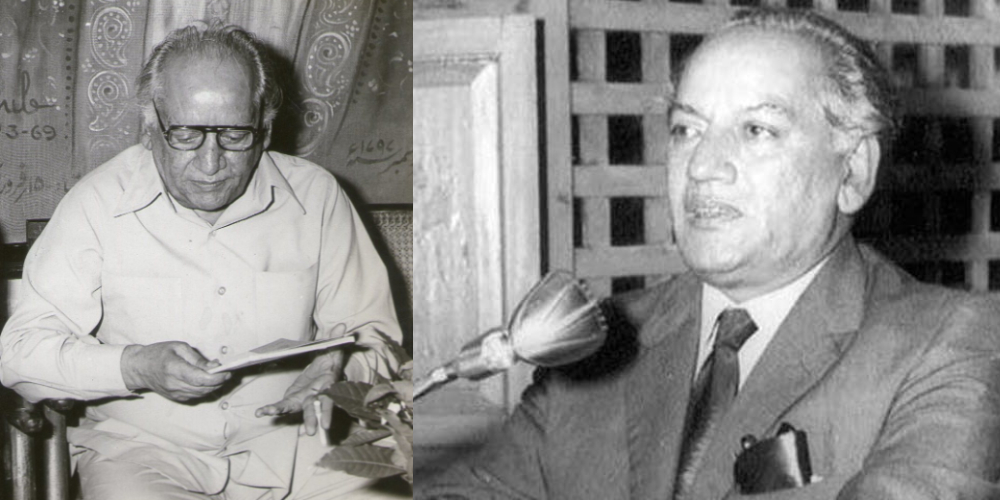
The 109th birth anniversary of revolutionary Urdu poet Faiz Ahmed Faiz is being observed today.
Faiz Ahmed Faiz was born in Sialkot on February 13, 1911.
Faiz in 1963 became the first Asian poet to take award for the Lenin Peace Prize, the Soviet Union’s equivalent of the Nobel Prize.
He was also the recipient of other awards including the Nigar Awards, HRC Peace Prize, Nishan-e-Imtiaz and Avicenna Prize.
His notable works include Naqsh-e-Faryadi, Dast-e-Sabah and Zindan-nama.
Faiz married Alys Faiz – a British national who had a tremendous influence on his life and poetry.
They had two daughters — Saleema and Muneeza. Alys’ influence on Faiz’s life and poetry is reputed to have been enormous.
In 1936, he started a branch of Anjuman Tarraqi Pasand Mussanafin-e-Hind in Punjab and was also a member and secretary of this branch.
Faiz had also worked as editor of Mahanama Adab-e-Lateef (1938 1942 AD) and became a lecturer in English at MAO College, Amritsar in 1935 and then at Hailey College of Commerce, Lahore.
He briefly joined the British Indian Army and promoted to the rank of Lieutenant Colonel in 1944.
He, later, resigned in 1947 and returned to Lahore to become the first editor-in-chief of Pakistan Times.
Pakistan Times, a paper started by Mian Iftikharuddin under Quaid-e-Azam Mohammad Ali Jinnah’s patronage.
However, this paper played an important role in the partition.
Moreover, Faiz spent much of the 1950s and 1960s promoting communism in Pakistan.
He was charged with complicity in a failed coup attempt known as the Rawalpindi Conspiracy Case.
Afterwards, he sentenced to four years of imprisonment in 1951.
The jail term gave him a first-hand experience of the harsh realities of life and provided him with much-needed solitude to think and write poetry.
Dast-e-Saba and Zindan Nama were products of this period of imprisonment.
In 1959 he appointed secretary Pakistan Arts Council and worked in that capacity till 1962.
Returning from London in 1964, he settled down in Karachi and appointed the principal at Abdullah Haroon College.
Faiz distinguished himself as a journalist and was editor of the Pakistan Times, the Urdu newspaper Imroze and the weekly Lail-o-Nihar.
In the 1965 war between India and Pakistan, he worked in an honourary capacity in the Department of Information.
In exile, Faiz acted as editor of the magazine Lotus in Moscow, London and Beirut.
He died on November 20, 1984.
Read More News On
Catch all the Lifestyle News, Trending News, Breaking News Event and Latest News Updates on The BOL News
Download The BOL News App to get the Daily News Update & Follow us on Google News.



